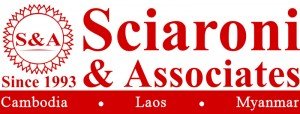Client Alert- Cambodia Labor Law Updates
By Max Howlett and Yun Sophal
New Regulations Focus on Healthy Workplace, Foreign Workforce, and Labor Identification Documents
Important Reminder: The deadline for submitting applications for foreign employee quota is fast approaching. Employers must apply for the foreign labor quota before the end of November 2014 in order to employ foreigners in 2015.
The Ministry of Labor and Vocational Training has recently issued a number of new Prakas (ministerial edicts) regulating workplace hygiene, foreign manpower employment, and labor identification documents.
- Prakas No. 194, dated 20 August 2014, on Working Conditions, Occupational Hygiene and Safety Rules of Enterprises, Establishments and Companies in Entertainment Service Industry
Prakas 194 mandates that employers of all enterprises, establishments or companies in the entertainment service industry must fully implement the Labor Law. It aims to: (i) strengthen the implementation of the Labor Law; (ii) affirm the obligation of employers to comply with the Labor Law; and (iii) improve industrial relations between employers and workers.
Employing entities within this industry must comply with the Labor Law, including its provisions and other regulations related to working conditions, hygiene and safety, and employment entitlements, even though the workers are being sent to work at entertainment venues outside.
People who work in this industry enjoy the same legal rights, entitlements, and benefits as other workers, including with respect to work schedule and overtime; procedures for disciplinary actions and termination; prohibition of forced labor, violence, and harassment; and access to health-related education.
Violation of this Prakas is subject to the penalties as specified in Chapter XVI of the Labor Law, not including any other criminal offenses.
- Prakas No. 195, dated 20 August 2014, on Work Permits and Employment Cards for Foreigners
Prakas 195 requires that owners or directors of enterprises who need to use foreign workers as well as foreigners entering into Cambodia to work must fulfill the work permit and employment card requirements.
The Prakas defines formalities for initial and extension applications for work permits and employment cards according to different categories of foreigners: (i) foreigners whose entry visa has a limited period of stay; (ii) Vietnamese or Laotians working in the Cambodia-Laos-Vietnam Triangle Development Zone along the border of certain Cambodian provinces; and (iii) foreigners whose permanent stay in Cambodia is permitted.
Payment for extended work permits and employment cards must be made before the end of March of each year.
Violation of this Prakas is subject to the penalties as specified in Chapter XVI of the Labor Law.
- Prakas No. 196, dated 20 August 2014, on Employment of Foreign Labor
Prakas 196 requires that employers must give priority to local Cambodians when they recruit staff and that, to the extent that there are no local resources available, they must request advance approval from the Ministry of Labor and Vocational Training to hire foreign workers. A request to employ foreign manpower for the coming year must include the numbers of local and foreign employees, the reasons for hiring foreigners and must be submitted to the Ministry before the end of November each year.
Standard quota for foreign employees against the number of local employees is 10%, of which 3% are office staff, 6% are specialized employees, and 1% are non-specialized employees. A higher quota may be permitted considering the actual needs of the company and each foreigner’s expertise and qualifications.
A written employment contract of each foreigner must be registered with the Ministry (for those who work in Phnom Penh) or at the provincial Department of Labor and Vocational Training (for those who work in a province).
Violation of this Prakas is subject to the penalties as specified in Chapter XVI of the Labor Law.
- Prakas No. 197, dated 20 August 2014, on Employment Cards for Cambodian Workers
Prakas 197 states that owners or directors of enterprises cannot employ any Cambodian workers who do not possess an employment card and must facilitate for them to apply for this document at the Ministry (for those who work in Phnom Penh) or at the provincial Department of Labor and Vocational Training (for those who work in a province).
Together with the employment card, the authority will also issue a new “Cambodian Worker Identification Card”.
Employers must bring the employment card to be notated at the Ministry or at the provincial department, as applicable, within 7 days of the worker starting or stopping work in the enterprise. Notation must also be made whenever there is a change to the worker’s role and wage.
Employers are prohibited from making any remarks on the employment card and must give it to the worker when he/she leaves the organization.
Violation of this Prakas is subject to the penalties as specified in Chapter XVI of the Labor Law.
- Prakas No. 198, dated 20 August 2014, on Usage of Receipt for Application and Payment for Work Permits and Employment Cards for Foreigners
Prakas 198 provides for the use of acknowledgement forms for receipt of the application pack and fee for work permits and employment cards filed and paid for by a foreigner working in Cambodia.
The receipts will serve as official evidence that the foreigner has already applied for the authorization documents as required by law and will be required when the foreigner returns to collect the work permit and employment card.
Sciaroni & Associates Labor Practice Group
Obtaining good labor advice and having well-executed employment contracts will help businesses to prevent disputes, save time and cost, and preserve reputation.
Sciaroni & Associates has been heavily involved in the development of this important sector since its early stages and is a leading and trusted authority on labor matters. In addition, the firm has assisted clients in mediation, arbitration, and settlement of disputes. Members of our Labor Practice Group have also authored textbooks of the subject for Cambodian lawyers and students.
As such, we are well placed to advise and assist you on labor related matters in Cambodia, and we have represented companies, investors, embassies, and organizations in the Kingdom of Cambodia as well as individuals.
Sciaroni & Associates is a leading business and investment advisory firm serving Southeast Asia since 1993 with offices in Cambodia, Laos and Myanmar. Sciaroni & Associates assists clients in understanding the complex business conditions in those markets while efficiently identifying and resolving issues following strict international ethical standards. Our firm provides experienced advice and seasoned business insights to many of the world’s leading companies, governments, economic think tanks, global development funds and international NGOs.
For more information please visit www.sa-asia.com or contact us at [email protected].
Max Howlett, Legal Director
An Australian lawyer, Max has been working in Cambodia since 1995 on a range of commercial, real estate and general legal matters. He has extensive knowledge of Cambodian law and assists many international clients with compliance issues regarding local laws and regulations. Max has a Master of Laws degree from the University of Melbourne.
Yun Sophal, Associates
Sophal has extensive knowledge of Cambodian law, practice, and custom, specializing in labor law issues and labor dispute resolution with experience in legal research, analysis, evidence examination and arbitral award drafting. She has served as a Legal Officer with the Arbitration Council Foundation. She earned her Bachelor of Laws in dual language-based programs from the Royal University of Law and Economics, Cambodia, and a Masters Degree in Law from the Transnational Law and Business University, South Korea. She speaks English and Khmer.






